When you think of horses, what comes to mind? Graceful Arabian horses galloping across the desert, or perhaps powerful Clydesdales pulling heavy loads? Horses are among the most diverse and fascinating animals on the planet, with various breeds designed for different purposes, from racing to farming and recreational riding. In this article, we’ll explore the top 10 horse breeds, diving into their features, history, uses, and characteristics. By the end of this guide, you’ll understand what makes each breed unique and how to care for them properly.
Before we get into the top 10 horse breeds, it’s important to understand what makes a horse breed. Simply put, a horse breed is a group of horses with similar characteristics, such as appearance, temperament, and abilities, which are passed down through generations. Each breed serves a specific purpose, whether it's speed, strength, or endurance. Horse breeds are classified based on these traits, and their pedigree or bloodline plays a huge role in their development.
Each breed has a history and specific qualities that make it well-suited for particular tasks. Some breeds are built for racing, like the Thoroughbred, while others are known for their strength and muscular builds, like the Clydesdale. Understanding the characteristics of different breeds is crucial whether you're interested in competitive riding, draft work, or just looking for a family-friendly horse.
Let’s dive into the top 10 horse breeds, based on their popularity, history, and versatility. These breeds are widely recognized for their unique traits, abilities, and roles across different equine disciplines.
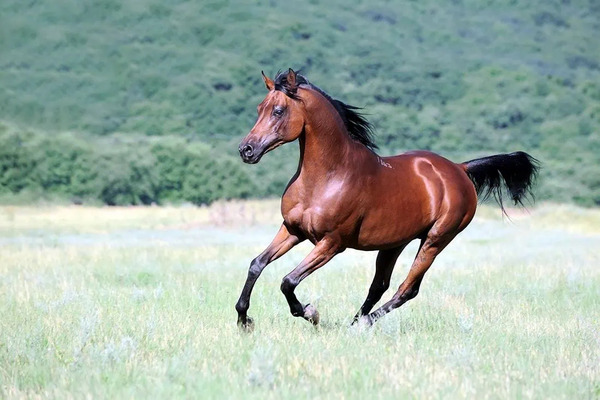
Arabian Horse
The Arabian horse is one of the oldest and most influential horse breeds. Known for its endurance, stamina, and speed, the Arabian has played a pivotal role in the development of many other horse breeds. Its refined features and distinct arched neck make it instantly recognizable.
Uses: Endurance riding, long-distance races, and foundation breed for other breeds.
Appearance: Small to medium size, refined head with a dished face, high tail carriage.
Temperament: Intelligent, energetic, and loyal.
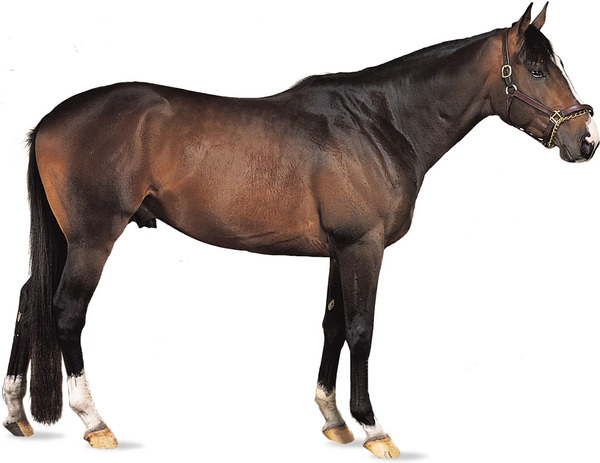
Thoroughbred
The Thoroughbred is the breed you’ll often see racing down tracks around the world. Known for their speed and agility, these horses have been bred for competitive racing and have also found success in show jumping, polo, and dressage.
Uses: Racing, show jumping, polo, eventing.
Appearance: Tall, lean, and athletic with long legs.
Temperament: Intelligent, sensitive, and high-strung.
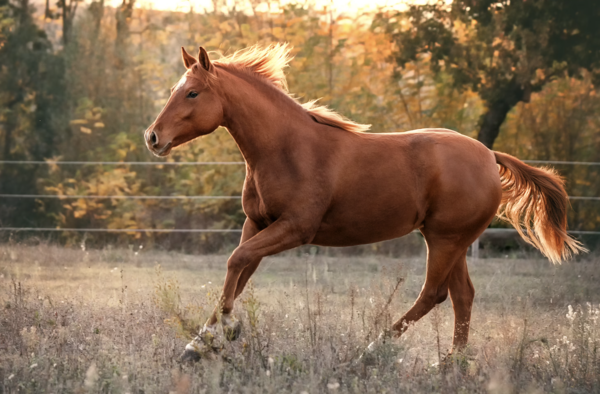
American Quarter Horse
The American Quarter Horse is one of the most versatile and popular horse breeds in the U.S. Known for its speed over short distances (a quarter mile), the Quarter Horse excels in Western riding, rodeo, and cattle work.
Uses: Western riding, barrel racing, ranch work, rodeo.
Appearance: Compact, stocky build with a broad chest and muscular hindquarters.
Temperament: Calm, intelligent, and friendly.
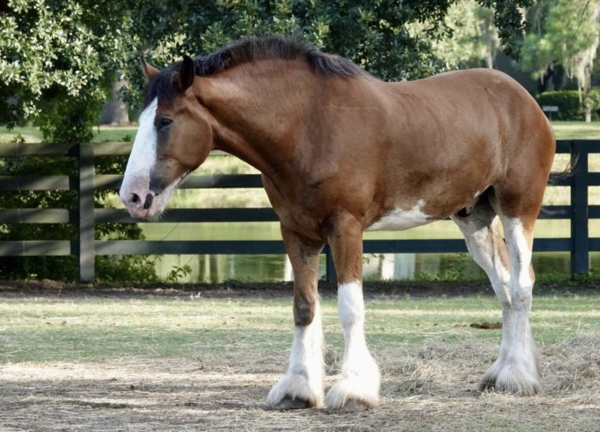
Clydesdale
The Clydesdale is a draft horse breed famous for its power and majestic appearance. With its large frame and feathered legs, the Clydesdale is often seen in parades, pulling carriages, or doing heavy farm work.
Uses: Draft work, parades, carriage driving.
Appearance: Large, heavyset body with long legs and a distinctive feathering around the hooves.
Temperament: Gentle, calm, and intelligent.
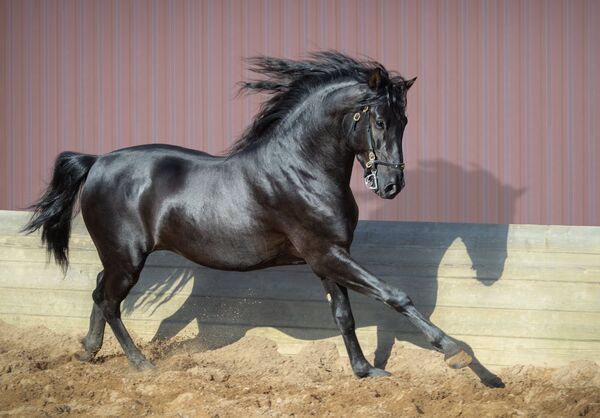
Andalusian horse
Originating from Spain, the Andalusian horse is known for its beauty, grace, and muscular build. It is a popular breed in dressage and other classical riding disciplines, praised for its elegance and natural talent in movement.
Uses: Dressage, classical riding, exhibitions.
Appearance: Medium to large, well-proportioned with a long, thick mane and tail.
Temperament: Intelligent, calm, and willing.
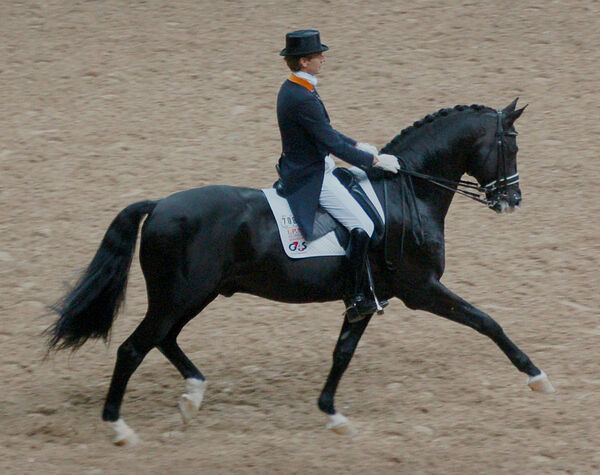
Warmblood
The Warmblood is a category of breeds known for their athletic ability, particularly in dressage and show jumping. These horses are a mix of cold-blooded draft breeds and hot-blooded Thoroughbreds, resulting in a horse that is strong, athletic, and generally calm.
Uses: Dressage, show jumping, eventing.
Appearance: Tall, muscular, with a refined head and long legs.
Temperament: Calm, steady, and trainable.
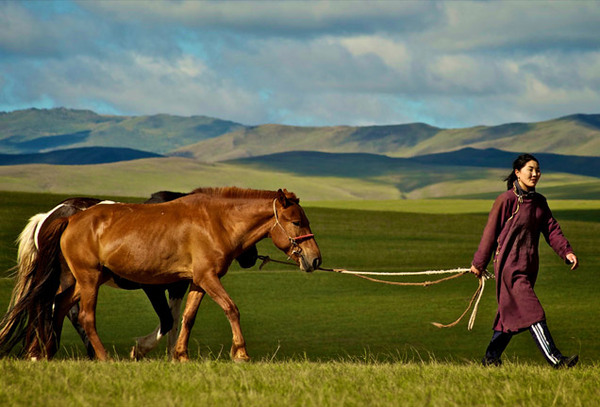
Mongolian horse
The Mongolian horse is a hardy breed originally used by the Mongol Empire. Known for their stamina and hardiness, these horses are able to thrive in harsh conditions, often grazing in the vast Mongolian steppe.
Uses: Riding, herding, historical purposes.
Appearance: Small to medium, sturdy with a thick coat for cold climates.
Temperament: Independent, tough, and alert.
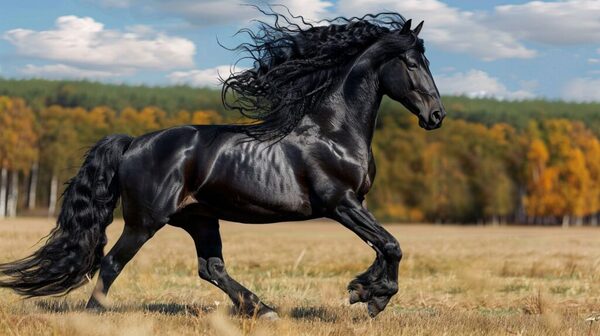
Friesian horse
The Friesian horse is famous for its striking black coat and impressive movements. Often seen in dressage and carriage driving, the Friesian is both a beauty and a powerhouse, with its flowing mane and high-stepping gait.
Uses: Dressage, carriage driving, exhibitions.
Appearance: Tall, elegant, with a black coat and long mane.
Temperament: Gentle, intelligent, and eager to please.
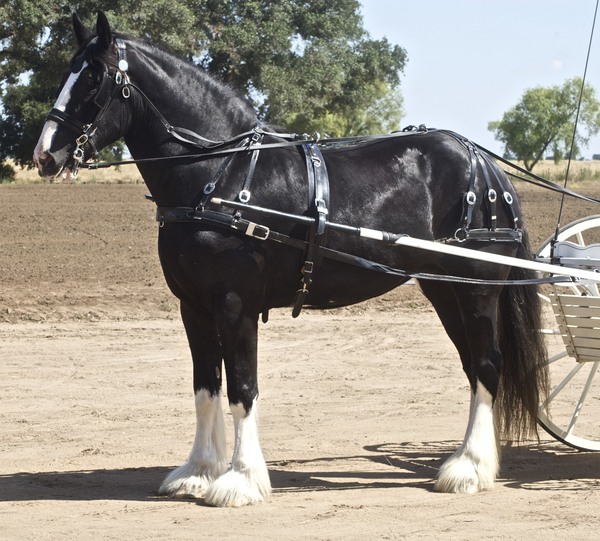
Shire horse
The Shire horse is one of the largest and most powerful draft breeds, originally bred for heavy farm work and pulling carts. Today, Shires are often used in parades, carriage driving, and draft work.
Uses: Draft work, parades, ceremonial uses.
Appearance: Large, muscular, with a thick coat and impressive stature.
Temperament: Gentle, calm, and patient.
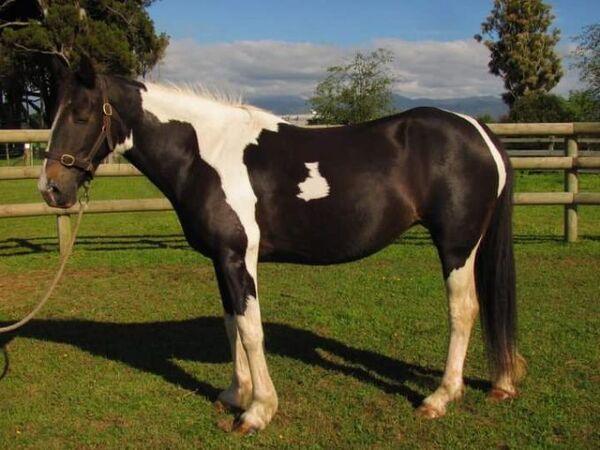
Coban horse
The Coban horse (also known as the Tarpan) is a rare and ancient breed that originated in the Eurasian steppes. Known for their hardiness, these horses were essential to early nomadic cultures and are admired for their ability to survive in harsh climates.
Uses: Riding, herding, historical purposes.
Appearance: Small, sturdy, with a thick coat and broad, strong build.
Temperament: Tough, intelligent, and independent.
Caring for a horse depends on the breed and its specific needs. Whether you have an Arabian or a Clydesdale, understanding your horse's nutritional needs, exercise, and grooming requirements is crucial for its health and happiness.
Each breed has different nutritional needs. For example, endurance breeds like the Arabian may need a diet that supports long-distance stamina, while draft breeds like the Clydesdale require a high-energy diet to maintain their size and strength.
Most horses, regardless of breed, require ample space for exercise. Breeds like the Thoroughbred and Warmblood need regular training and exercise to keep them in top condition, while draft breeds like the Shire benefit from slower, lighter work to prevent joint strain.
| Horse Breed | Primary Uses | Size | Temperament | Distinctive Features |
|---|---|---|---|---|
| Arabian Horse | Endurance riding, foundation breed | Small to medium | Intelligent, energetic, loyal | Refined head, dished face, high tail |
| Thoroughbred | Racing, jumping, polo | Tall, lean | Sensitive, intelligent | Long legs, deep chest |
| American Quarter Horse | Western riding, ranch work, rodeo | Compact, muscular | Calm, intelligent, friendly | Broad chest, stocky build |
| Clydesdale | Draft work, carriage driving, parades | Large, heavyset | Gentle, calm, intelligent | Feathered legs, heavy build |
| Andalusian Horse | Dressage, classical riding | Medium to large | Intelligent, calm, willing | Long mane, elegant movement |
| Warmblood | Dressage, show jumping, eventing | Tall, muscular | Steady, trainable | Athletic build, calm temperament |
| Mongolian Horse | Riding, herding, historical | Small to medium | Tough, independent, alert | Sturdy, thick coat |
| Friesian Horse | Dressage, carriage driving | Tall, elegant | Gentle, eager to please | Black coat, long flowing mane |
| Shire Horse | Draft work, ceremonial, parades | Large, muscular | Patient, gentle | Massive build, thick coat |
| Coban Horse | Riding, herding, historical | Small, sturdy | Tough, intelligent | Broad, strong build, thick coat |
From the Arabian horse's endurance to the Clydesdale's power, each horse breed brings its own unique characteristics and abilities. Whether you're drawn to the speed of the Thoroughbred or the majestic Friesian, understanding the distinct qualities of these breeds will help you choose the best fit for your lifestyle. Proper care, training, and attention to each breed’s needs will ensure a happy and healthy relationship with your equine companion.
By exploring the top 10 horse breeds, you now have a deeper understanding of the history, uses, and features of these magnificent animals. Whether you're involved in competitive riding, draft work, or simply enjoying the companionship of a horse, there’s a breed out there that will meet your needs and expectations. Happy riding!
animal tags: horse
We created this article in conjunction with AI technology, then made sure it was fact-checked and edited by a Animals Top editor.